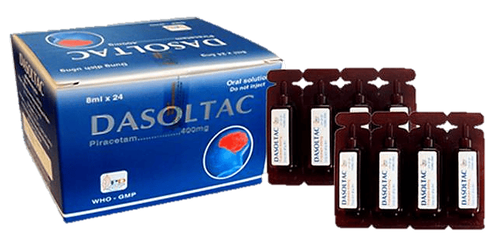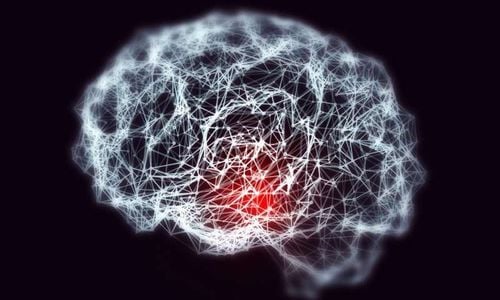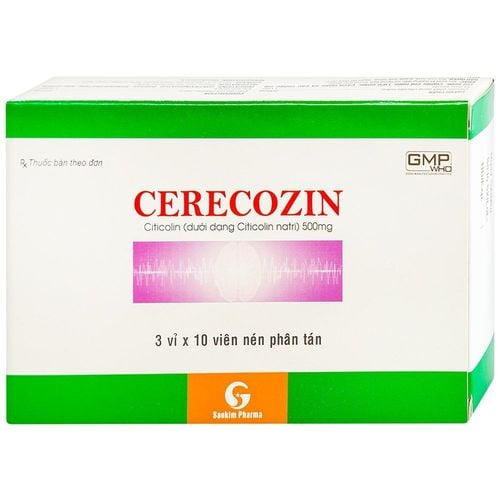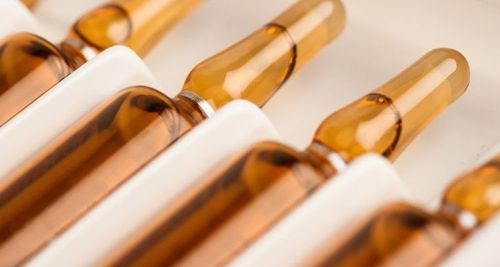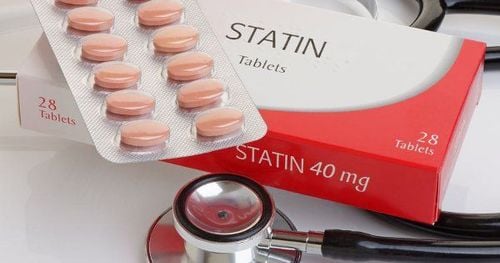This is an automatically translated article.
Cerebral ischemia is a dangerous disease, ranked 3rd in the cause of death in the world, after cancer and cardiovascular disease. To treat cerebral ischemia, in addition to complying with the doctor's prescription, we need a reasonable diet.
1. Causes of cerebral ischemia and typical symptoms
1.1. Causes of cerebral ischemia There are many different causes leading to cerebral ischemia, the most common are:
Atherosclerosis, especially carotid atherosclerosis, thickens the walls of the vessels that carry blood to the brain, narrowing of the blood vessels, blocking blood flow to the brain. Cervical spondylosis puts pressure on the vessels that carry blood to the brain, thereby also causing cerebral ischemia. As you age, your heart's blood pumping activity weakens, reducing blood flow to your organs, including your brain. Cerebral ischemia often causes very serious consequences, because just one artery is completely blocked by a thrombus, and the patient can die from circulatory failure, respiratory failure or can cause cerebral hemorrhage, emphysema. brain leading to death. Therefore, cerebral ischemia is the third leading cause of death in the world, after cancer and cardiovascular disease. Cerebral ischemia is a common disease in the elderly, so the treatment of this disease in the elderly should be carefully considered because if not careful, it is easy to have complications, because most drugs treat cerebral ischemia. often accompanied by hypertension.
1.2. Typical symptoms of cerebral ischemia In cerebral ischemic disease, patients may experience typical signs such as:
Prolonged headache: accounts for about 90%, is the first symptom that appears and or encountered when sick. Initially just throbbing in the head area, then spread all over the head, heavy head. Dizziness, dizziness, headache, tinnitus, loss of balance... account for a fairly high rate, about 87%. Insomnia: some patients have symptoms of insomnia such as being able to sleep at night, often tossing and turning in the middle of the night, and falling asleep in the morning. Long-term insomnia makes the whole body tired, hearing is not clear, memory is reduced. Memory decline: this is a natural progression in human aging, both due to aging in brain cells, brain degeneration, brain atrophy, and lack of blood supply to nourish the brain. Fatigue, numbness in the limbs: the lack of blood to the extremities will cause numbness and pain in the limbs. Patients often feel numbness in the tip of their fingers, the feeling of crawling affects daily activities.

Mất ngủ là một trong các triệu chứng điển hình của thiếu máu não
2. What should be eaten with cerebral anemia?
2.1. Animal Supplements Fatty Fish Fatty fish are a good source of omega-3 fatty acids as well as other healthy fats. Omega-3s may help reduce blood levels of beta-amyloid, a protein that forms blocks that cause brain damage in people with Alzheimer's disease.
A 2017 study found that people who regularly took omega-3 supplements increased blood flow to the brain. Scientists also observed a link between omega-3 levels and better cognitive ability or thinking ability.
We should eat at least two fish meals a week but choose varieties that are low in mercury, such as salmon, cod, canned tuna or pollock. If you're one of those people who don't like fish, ask your doctor or nutritionist for advice on omega-3 supplements or alternative sources of omega-3s from flaxseeds, avocados, or flaxseeds. walnuts...
Eggs Eggs are also one of the foods that are good for our brain. Eggs contain a lot of B vitamins including:
Vitamin B6 Vitamin B12 Folic acid (vitamin B9) Recent studies have shown that these vitamins have the ability to prevent brain atrophy and slow down the decline process awareness.
Beef Beef is a food rich in protein, iron and many other nutrients. Not only that, in beef also has a certain amount of vitamins B2, B6 and B12 to help strengthen the immune system, promote red blood cell regeneration, and effectively support brain activity.
We can prepare beef with a variety of nutritious ingredients to create dishes that are both delicious and have many health benefits.
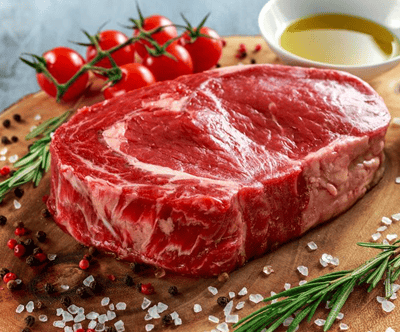
Thịt bò bổ sung nhiều dưỡng chất tốt cho việc cải thiện trí ở cho người bệnh
2.2. Plant-based supplements Green leafy vegetables Kale, spinach, collard greens, broccoli are green leafy vegetables that are rich in nutrients that are good for the brain, such as vitamin K. lutein, folate and beta carotene. Research shows that these foods have anti-aging effects, thereby slowing cognitive decline.
Berries According to research, flavonoids, a group of naturally occurring compounds found in plants that give them their vibrant colors, also help improve memory. A study published in the Annals of Neurology in 2012 found that women who consumed two or more servings of strawberries/blueberries weekly had up to two and a half years of slower memory decline than women who ate two and a half servings of blueberries. do not use.
Walnuts Nuts are often high in protein and healthy fats. In particular, walnuts help improve memory. A study published in 2015 found a link between high walnut consumption and improved scores on cognitive tests.
Walnuts contain alpha-linolenic acid (ALA), an omega-3 fatty acid that lowers blood pressure and protects the arteries. This food is good for both brain and heart health.
Whole grains Whole grains contain a lot of vitamins, typically vitamin E. Our health can be improved by eating whole grain foods:
Brown rice Oats Oats Whole grain bread Soy products Soy products contain a group of antioxidants oxidizing agents called polyphenols. Research shows that polyphenols help reduce the risk of dementia and improve cognitive performance.
Polyphenols in soy products are called isoflavones, including daidzein and genistein. These ingredients act as antioxidants, providing a variety of general health benefits to the body.
Fruits and vegetables rich in vitamins and iron Pomegranates, strawberries, raspberries, grapes, plums... also have high levels of vitamins and antioxidants that will help the body increase iron absorption, Strengthen the health of the immune system, effectively prevent diseases.
Many vegetables have a high content of vitamins and minerals (zinc, iron) such as celery, pumpkin, carrots... which help increase blood circulation, enhance metabolism with cells.
Therefore, to prevent cerebral ischemia, you should pay attention to adding the above foods to your daily diet and maintain a healthy lifestyle to ensure the best health condition.
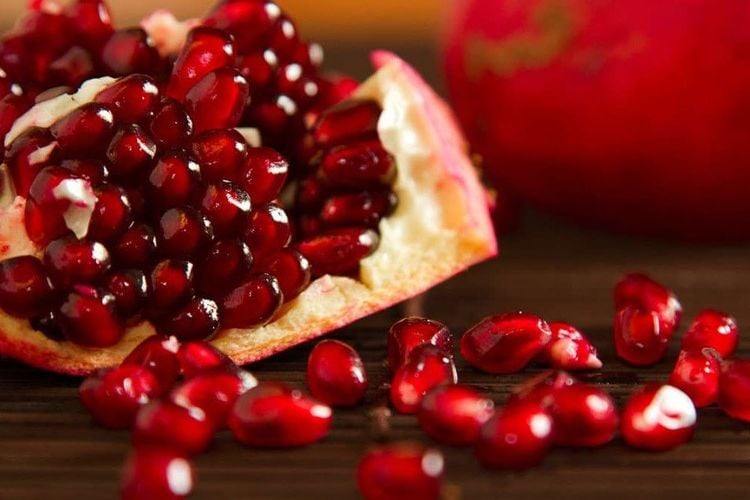
Người bệnh nên sử dụng một số loại trái cây giàu sắt và vitamin như trái lựu
Besides, you also need to have regular health check-ups to help detect abnormalities early, so that you can have a treatment plan for optimal results. Currently, Vinmec International General Hospital has general health checkup packages suitable for each age, gender and individual needs of customers with a reasonable price policy. After having the results of the physical examination, if any diseases that need examination and treatment are detected, the doctor will advise and have appropriate indications for each client's condition.
Please dial HOTLINE for more information or register for an appointment HERE. Download MyVinmec app to make appointments faster and to manage your bookings easily.




